Your No-BS Guide to the 2025 Singapore Election Manifestos
Election fever is in full swing, and you've probably been bombarded with rallies, social media posts, and those awkward candidate visits to the hawker center. But beyond all the handshakes and fancy slogans, what are these parties actually promising to do if they get your vote?
We dug through the manifestos of all the major parties – PAP, WP, PSP, SDP, RDU, SPP, and NSP – so you don't have to.
This isn't about telling you who to vote for. It's about giving you the facts so you can decide what matters most to your wallet and your future. Forget the political theatrics – let's get to what each party is actually putting on the table.
We cover:
- Cost of Living & Taxes
- Housing Policies
- Jobs & Wages
- Healthcare
- Retirement & Social Safety
- Education
- Transport
- Governance & Democracy
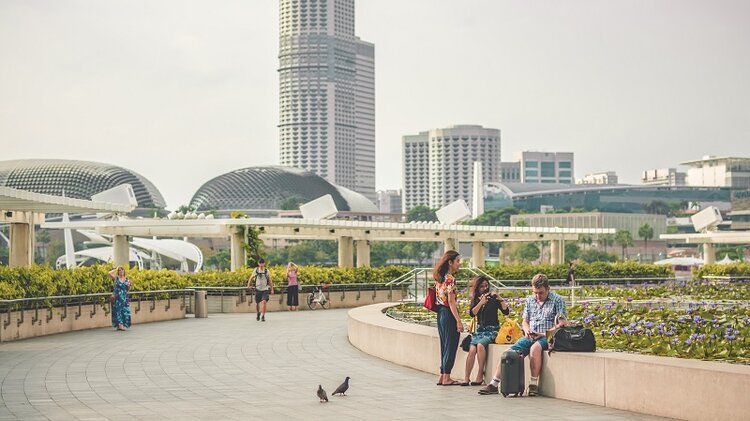
Cost of Living & Taxes
If there's one thing every Singaporean feels, it's the pinch in their wallet. With inflation and the GST hike to 9%, parties are scrambling to show they understand your pain. Here's what each is proposing:
PAP
The incumbents acknowledge cost of living concerns but don't promise specific GST reductions. Instead, they're focusing on targeted support through continued vouchers and subsidies. Their manifesto mentions "building a dynamic economy" to create opportunities, but details on immediate cost relief are relatively thin.
Workers' Party
The WP voted against the GST hike and proposes alternative revenue sources. They want to exempt essential goods (especially food items) from GST and suggest allowing land sales revenue to be partially used in the budget. They're also pushing for tiered utility pricing to help households with lower consumption pay less.
Progress Singapore Party
PSP wants to roll back the GST to 7% and exempt basic essentials like water, rice, eggs, and formula milk. They propose setting hawker stall rents at $500 or 3% of gross revenue (whichever is higher) and phasing out the privately-managed hawker centers in favor of government-run ones to keep food affordable.
Singapore Democratic Party
SDP has the most aggressive GST stance, calling to eliminate it completely for essentials and reduce it overall. They want to reduce rents (noting the government owns most land) and criticize the current "handouts and vouchers" approach as only providing "temporary relief and a cushion at best."
Red Dot United
RDU is proposing a "Citizens Dividend" – an unconditional cash transfer for all Singaporeans as a financial safety net. They're focusing on fair wages and providing job security with a citizens-first hiring policy, along with supporting SMEs through fairer procurement policies and more accessible grants.
Singapore People's Party
SPP wants a yearly balanced budget that distributes government surpluses as CDC vouchers, with more for lower-income families. They call for a GST freeze until there's a cumulative budget deficit exceeding 3% of government revenue for three consecutive years, alongside a living wage policy and more progressive taxation.
National Solidarity Party
NSP calls for removing GST on essential items and baby supplies. They want to establish "Township Fair Price Committees" to monitor and cap prices for essential goods in high-cost estates, though they don't specify how they'd determine what constitutes a high-cost estate.
| Party | GST Policy | Cost Relief Approach |
|---|---|---|
| PAP | Maintain at 9% | Targeted subsidies and vouchers |
| WP | Exempt essentials | Alternative revenue sources, tiered utility pricing |
| PSP | Reduce to 7%, exempt basics | Control hawker rents, centralize management |
| SDP | Eliminate for essentials, reduce overall | Rent reductions, structural changes |
| RDU | Not explicitly stated | Citizens Dividend (cash transfer) |
| SPP | Freeze increases | Distribute budget surpluses as vouchers |
| NSP | Remove for essentials | Township Fair Price Committees |
The Coconut Take:
Almost every opposition party wants to do something about GST, while the PAP is sticking to its guns. But here's the thing – GST is a reliable revenue generator. Any party that wants to cut it needs to explain where that money will come from instead. WP and PSP at least try to address this with alternative revenue proposals. Universal cash transfers (like RDU's Citizens Dividend) sound nice, but the devil's in the details – especially the funding mechanism.

Housing Policies
Whether you're waiting years for a BTO, worried about your aging flat's value, or a single hoping to move out before 35, housing policies affect nearly every Singaporean. The parties have vastly different approaches:
PAP
The PAP's manifesto emphasizes "More Affordable Public Housing" and "More Choices for Singaporeans" but lacks specific new policy details. They've previously introduced the Prime and Plus models for BTO flats with longer MOP periods and subsidy clawbacks to manage prices while maintaining the current age restrictions for singles.
Workers' Party
WP proposes a clear HPI (House Price-to-Income) metric for BTO affordability and wants to offer 70-year lease BTOs at lower prices with an option to top up later. They support a universal buy-back scheme for aging HDB flats to prevent lease decay issues and want to lower the singles eligibility age from 35 to 28.
Progress Singapore Party
PSP proposes replacing BTOs with an "Affordable Homes Scheme" where flats are sold without land cost (only recovered if sold on the resale market). They also want singles to buy BTOs and resale flats from age 28 and propose a "Millennial Apartments Scheme" for affordable rentals in the CBD and mature estates for young people.
Singapore Democratic Party
SDP's Non-Open Market (NOM) scheme would exclude land costs from HDB prices, with NOM flats built on specially zoned land that can only be sold back to HDB. They'd range from $90,000 (2-room) to $270,000 (5-room), with a buffer stock to minimize wait times. Current owners could also convert to the NOM scheme.
Red Dot United
RDU calls for a "Comprehensive Housing Reset" with every HDB estate eligible for SERS to ensure older flats retain value. They want to expand public rental housing and introduce a rent-to-own scheme for the bottom 20% of income earners and young singles. They'd also restrict PRs and new citizens from buying resale flats with less than 79 years lease remaining.
Singapore People's Party
SPP wants to lower the minimum age for singles to apply for BTO or resale flats to 30. They support expanding SERS to all estates nearing lease expiry to preserve HDB asset values. They're also advocating a five-year pilot to relax ethnic quotas in HDB estates to help minority flat owners sell at fair market value.
National Solidarity Party
NSP advocates for a "HomeFirst" model where BTO prices are pegged to construction and land acquisition costs rather than market valuation. To prevent "BTO-to-private profit-flipping cycles," they propose resale price stabilizers with progressive property tax on multiple property owners
| Party | Flagship Housing Policy | Singles Policy | Lease Decay Solution |
|---|---|---|---|
| PAP | Prime/Plus models with subsidy clawback | Maintain age 35 limit | VERS (details pending) |
| WP | 70-year BTOs with top-up option | Lower to age 28 | Universal buy-back scheme |
| PSP | Affordable Homes Scheme (no land cost) | Lower to age 28 | Pressing for VERS details |
| SDP | Non-Open Market scheme ($90k-$270k flats) | Not explicitly stated | NOM structure prevents decay issues |
| RDU | Universal SERS eligibility | Expanded rental options | Universal SERS eligibility |
| SPP | Expanded SERS | Lower to age 30 | Expanded SERS |
| NSP | HomeFirst model (cost-based pricing) | Not explicitly stated | Progressive tax on multiple properties |
The Coconut Take:
Now we're getting to the heart of Singapore's fundamental tension – HDB as affordable housing vs. HDB as an investment asset. PSP, SDP, and WP are all pushing versions of removing or reducing land cost from public housing, which would make flats much more affordable but potentially impact long-term appreciation. Whether you like these ideas probably depends on whether you already own property (and how much of your retirement is tied to it) or are still trying to get on the property ladder. The singles eligibility age reduction is gaining widespread support among opposition parties – this could be a vote-winner with the growing single population.

Jobs & Wages
The jobs landscape is changing rapidly with AI, global competition, and an aging workforce. How do the parties plan to protect Singaporean jobs while ensuring fair wages?
PAP
The PAP manifesto talks about "A Dynamic Economy – Opportunities For All" and "More Pathways – More Fulfilled Dreams" but is light on specific policy changes. They've previously emphasized the Progressive Wage Model rather than a minimum wage and maintained the current foreign worker policy framework with incremental adjustments.
Workers' Party
WP proposes a National Minimum Wage of $1,600 for full-time work (pro-rated for part-time). They want redundancy insurance for all local workers with 40% salary replacement for up to 6 months and propose mandatory retrenchment benefits. WP also suggests tying Employment Pass renewals to skills transfer to locals.
Progress Singapore Party
PSP proposes a $2,250 Minimum Living Wage (providing $1,800 take-home after CPF). They want to strengthen the Fair Consideration Framework, implement EP quotas per company (with higher quotas for SMEs), introduce a $1,200 monthly EP levy, and increase the EP qualifying salary to $10,000. They also call for reducing the work week from 44 to 40 hours.
Singapore Democratic Party
SDP believes the Progressive Wage Model is a "good start" but doesn't cover all workers. They propose a national minimum wage and retrenchment insurance through CPF. They specifically target the technology sector, calling for "weaning our economy off its addiction to multinational corporations" and leveling the playing field for local SMEs.
Red Dot United
RDU's "Citizens Dividend" would provide financial support during job transitions and underemployment. They also prioritize fair wages with a "citizens-first" hiring policy and want to support SMEs with fairer procurement practices, tackling late payments, moderating rents, and making grants more accessible.
Singapore People's Party
SPP proposes offering tax breaks to businesses prioritizing Singaporean PMETs and enforcing higher local hiring quotas with a raised Local Qualifying Salary. They want to codify TAFEP guidelines into law, mandating fair hiring and retrenchment benefits, and propose abolishing the statutory retirement age of 63.
National Solidarity Party
NSP is calling for firms to demonstrate that skills sought in foreign workers aren't available among Singaporeans. They advocate for mandatory NS for new male citizens aged 16-40 (minimum 6 months) and suggest expanding financial aid and nutrition support for early childhood education.
| Party | Minimum Wage Proposal | Foreign Worker Policy | Worker Protection |
|---|---|---|---|
| PAP | Progressive Wage Model | Current framework with incremental tightening | Existing protections |
| WP | $1,600 universal | EP renewals tied to skills transfer | Redundancy insurance, mandatory retrenchment benefits |
| PSP | $2,250 ($1,800 after CPF) | EP quotas, $1,200 monthly EP levy, $10,000 minimum | 40-hour work week, retrenched exemption from non-compete |
| SDP | National minimum wage (unspecified) | Talent track with rigorous verification | Retrenchment insurance through CPF |
| RDU | Fair wages (unspecified) | Citizens-first hiring policy | Citizens Dividend as safety net |
| SPP | Living wage policy (e.g., $1,500) | Tax breaks for hiring locals, higher quotas | TAFEP guidelines codified into law |
| NSP | Not explicitly stated | Skills verification, NS for new citizens | Not explicitly stated |
The Coconut Take:
Foreign worker policy is where we see the biggest divide. The opposition parties are uniformly pushing for stricter controls on EPs and better protection for local workers, while PAP maintains that overly strict policies would harm Singapore's competitiveness and economic growth. PSP's proposed EP salary of $10,000 would be a massive shift from the current ~$5,600 threshold. The minimum wage debate continues, with most opposition parties supporting it while PAP sticks with the Progressive Wage Model. If you're concerned about foreign competition for PMET jobs, you'll find more aggressive policy proposals from the opposition.
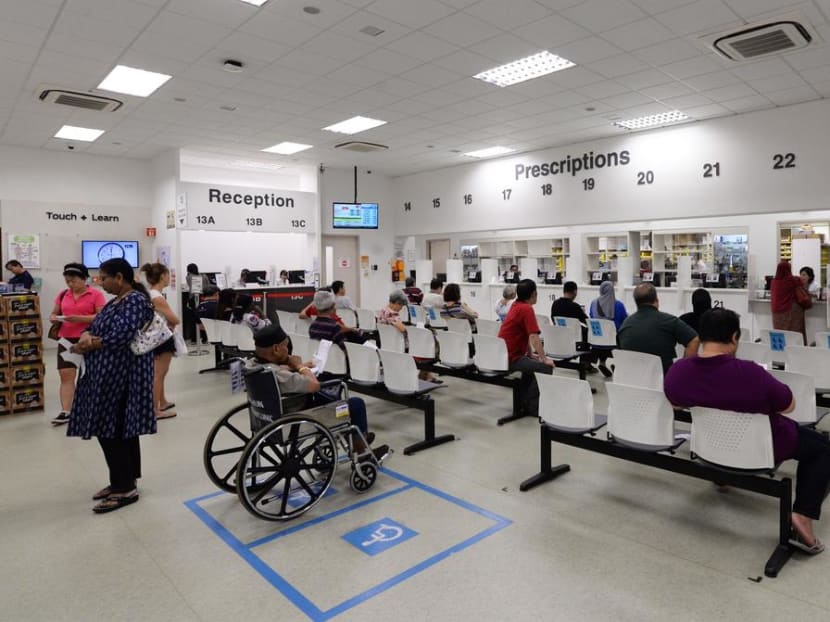
Healthcare
With an aging population and rising healthcare costs, Singapore's healthcare financing model is under pressure. How do the parties propose to keep healthcare affordable while maintaining quality?
PAP
The PAP manifesto mentions "Affordable Healthcare – Better Health" but doesn't outline major changes to the current system. They've previously rolled out Healthier SG focused on preventive care and maintained the current 3Ms framework (MediSave, MediShield Life, MediFund) with periodic enhancements.
Workers' Party
WP proposes removing MediSave caps for over-60s to let them use their MediSave for all medical expenses not covered by other schemes. They want additional MediSave top-ups for persons with disabilities and suggest creating a National Cancer Care Appeals Board to improve access to complex cancer treatments.
Progress Singapore Party
PSP proposes that the government should pay the MediShield Life and CareShield Life premiums for all Singaporeans. They also suggest a $3,000 cash gift for every mother upon childbirth to defray confinement costs and want to centralize drug procurement for public and private facilities to lower costs.
Singapore Democratic Party
SDP proposes a complete overhaul with a "simple national health insurance system" replacing the current 3Ms. They suggest maternal and pediatric services should be "largely free" to address falling birth rates. They also propose a single-payer universal healthcare system and believe the healthcare cluster system "needs to be abandoned" in favor of a unified public sector.
Red Dot United
RDU wants to redesign MediSave to function as a supplementary fund rather than the primary means of financing medical costs. They don't provide specific details on the mechanism, but emphasize it as part of their "Caring Healthcare" pillar.
Singapore People's Party
SPP proposes subsidizing telehealth consultations for elderly and low-income groups. They want to raise MediSave withdrawal limits to $1,200 annually for preventive and mental health care, cap out-of-pocket costs for elder care with a universal scheme, and integrate mental health professionals into polyclinics.
National Solidarity Party
NSP proposes a $10 cap on GP visits at community clinics for all Singaporeans under a "CareNear" initiative, though details on funding this program aren't specified in their manifesto
| Party | Healthcare System Approach | Cost Control Measures | Special Focus Areas |
|---|---|---|---|
| PAP | Current 3Ms framework | Healthier SG (preventive care) | Not explicitly highlighted |
| WP | Enhanced 3Ms system | Remove MediSave caps for over-60s | Disability support, cancer treatment access |
| PSP | Government-paid insurance premiums | Centralised drug procurement | Maternal support ($3,000 gift) |
| SDP | Single-payer universal system | Unified public healthcare sector | Free maternal and pediatric care |
| RDU | Redesigned MediSave | Not explicitly detailed | Not explicitly highlighted |
| SPP | Enhanced current system | Increased MediSave withdrawal limits | Mental health, telehealth, elder care |
| NSP | Current system with cost caps | $10 GP visit cap | Affordable primary care |
The Coconut Take:
There's a clear split between parties proposing tweaks to the existing system (WP, PSP, SPP, NSP) versus those wanting wholesale reform (SDP). PSP's suggestion that the government pay everyone's MediShield Life premiums would be expensive but game-changing for many families. The $10 GP visit cap from NSP would be popular but needs a clear funding mechanism. The most financially significant proposal is SDP's single-payer system, which would fundamentally change healthcare financing in Singapore. As with many proposals, the key question is always: who ultimately pays for it?

Retirement & Social Safety
Can Singaporeans retire comfortably? How robust should our social safety nets be? These questions are becoming increasingly important with our aging population and changing economy.
PAP
The PAP manifesto mentions "For Seniors – Financial Security And Peace Of Mind" and "For Every Singaporean – The Support That You Need" but doesn't detail specific new policies. They've previously emphasized the current CPF framework with targeted assistance schemes for vulnerable groups rather than universal benefits.
Workers' Party
WP calls for the abolition of the statutory retirement age to enable older workers to continue working if they choose. They propose CPF reforms including allowing members to co-invest with GIC, introducing a special GIC dividend for CPF members, reviewing the OA interest rate formula, and permanently delinking the HDB loan rate from the CPF OA rate.
Progress Singapore Party
PSP wants to simplify the existing support scheme system to a few national schemes. They propose a $1,250 monthly government-paid allowance (including CPF) for full-time caregivers of children under 7, doubling Silver Support payouts, and ensuring full utilization of Pioneer and Merdeka Generation Funds.
Singapore Democratic Party
SDP proposes abolishing the CPF minimum sum scheme, which they describe as "not only impractical but also immoral." They advocate for a broader Silver Support Scheme assisting 80% of low-income elderly with $500 monthly, funded from interest income on reserve investments. They also support retrenchment insurance via CPF.
Red Dot United
RDU's flagship "Citizens Dividend" is positioned as a universal safety net. While light on specifics, they estimate it would cost $2-4 billion and emphasize it wouldn't "drain the reserves" but would be funded from budget surpluses and tax policy changes.
Singapore People's Party
SPP proposes abolishing the statutory retirement age of 63 and offering tax incentives for companies hiring seniors past 70 who choose to keep working. They also suggest offering five days of paid parent-care leave and subsidizing elder-friendly housing and retirement villages.
National Solidarity Party
NSP proposes a "NextGen Singapore youth leadership fellowship" to support young Singaporeans in policy development, but their manifesto doesn't detail specific retirement or elderly support policies
| Party | CPF Policy | Retirement Age | Social Support |
|---|---|---|---|
| PAP | Current framework | Current structure | Targeted assistance |
| WP | Co-investing with GIC, special dividend | Abolish statutory retirement age | Not specifically highlighted |
| PSP | CPF Lifetime Retirement Investment Scheme | Not specifically stated | Double Silver Support, caregiver allowance |
| SDP | Abolish minimum sum scheme | Not specifically stated | Expanded Silver Support to 80% of low-income elderly |
| RDU | Not specifically stated | Not specifically stated | Citizens Dividend (universal) |
| SPP | Not specifically stated | Abolish statutory retirement age | Parent-care leave, elder-friendly housing |
| NSP | Not specifically stated | Not specifically stated | Not specifically highlighted for seniors |
The Coconut Take:
Singapore's been traditionally cautious about welfare, fearing the "slippery slope" of welfare dependency. But we're seeing several parties push for more robust safety nets. The CPF remains controversial – WP wants to enhance its returns through GIC co-investment, while SDP wants to abolish the minimum sum entirely. Both WP and SPP want to scrap the retirement age, which makes sense given our aging population and labor shortage. The most comprehensive retirement security plan comes from PSP, with its combination of doubled Silver Support and caregiver allowances. RDU's Citizens Dividend is the closest thing to a Universal Basic Income being proposed, but the details are still fuzzy.

Education
Singapore's education system is world-renowned, but is it still producing the right skills for the future? And is it putting too much pressure on our kids? The parties have different visions:
PAP
The PAP manifesto doesn't outline specific new education reforms. They've previously emphasized strengthening skills-based education and reducing emphasis on academic results, but have maintained core structural elements like streaming and the PSLE.
Workers' Party
WP proposes capping all primary and secondary class sizes at 23 students (current average is 33-40). They suggest a 10-year through-train program as an alternative to taking the PSLE, later school start times, and centralising tuition support for low-income students. They also want to equalise SPED school fees with mainstream schools
Progress Singapore Party
PSP wants to pilot a 10-year through-train program where PSLE is optional. They call for allowing a range of school sizes rather than closing small schools, reducing class sizes, and expanding non-academic pathways to university admission through the WSQ program.
Singapore Democratic Party
SDP proposes nationalising preschools, scrapping the PSLE entirely, reducing class sizes to 20 students maximum, and introducing a Dedicated-Teacher System where one teacher follows a class for three years. They also want to eliminate all forms of school ranking and provide interest-free university loans.
Red Dot United
RDU's manifesto highlights educational reform but doesn't provide specific policy details in the available information.
Singapore People's Party
SPP calls for reducing class sizes for more personalized education and shifting to AI mastery and skills-based reasoning with less exam pressure. They want to expand mental health resources in schools and allow CPF use for overseas tertiary education (with safeguards). They also support lowering the voting age to 18.
National Solidarity Party
NSP advocates nationalising early childhood education to ensure universal affordability and expanding financial aid at preschool and primary levels. They don't specify reforms to the primary and secondary education systems in their available materials.
| Party | PSLE Policy | Class Size | Special Focus |
|---|---|---|---|
| PAP | Maintain with ongoing refinements | Current sizes | Skills-based education |
| WP | Optional 10-year through-train | Cap at 23 students | Later school start times, SPED fee equality |
| PSP | Optional with through-train option | Reduce (unspecified target) | Preserve small schools, non-academic university paths |
| SDP | Abolish completely | Cap at 20 students | Dedicated teacher system, nationalized preschools |
| RDU | Not specified | Not specified | Not detailed in available information |
| SPP | Less exam pressure (unspecified) | Reduce (unspecified target) | AI mastery, mental health resources |
| NSP | Not specified | Not specified | Nationalized preschools, financial aid |
The Coconut Take:
The opposition parties are coalescing around similar education reforms: smaller class sizes, less emphasis on PSLE (with some wanting to scrap it entirely), and more diverse pathways to success. There's also growing consensus on the need for nationalized or heavily subsidized preschool education. Parents frustrated with academic pressure might find these proposals appealing. SDP's dedicated teacher system is an interesting idea that would provide more continuity for students, though implementation would be challenging. The PAP has been gradually reforming education but seems to favor incremental changes to the existing system rather than the more dramatic overhauls proposed by opposition parties.
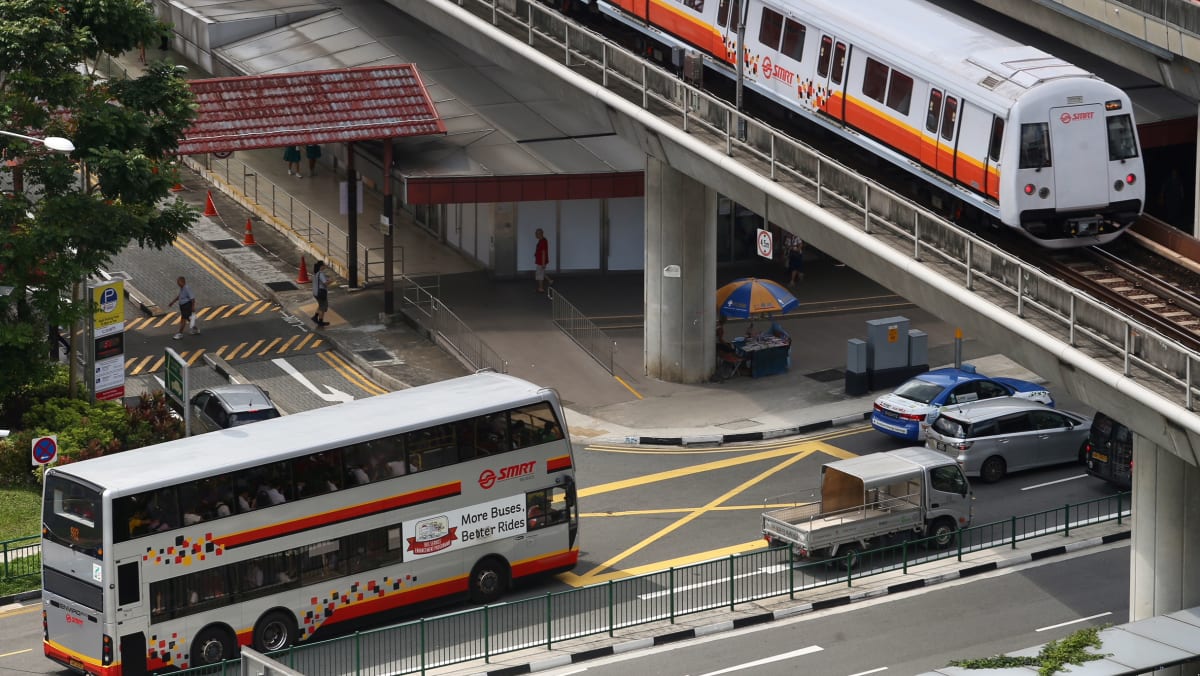
Transport
With recent MRT fare hikes and record COE prices, transportation costs are hitting Singaporeans hard. Here's what the parties propose:
PAP
The PAP hasn't outlined specific new transport policies in their manifesto. They've previously emphasised system expansion and reliability improvements while maintaining the current COE system with periodic adjustments.
Workers' Party
WP proposes establishing a National Transport Corporation (NTC) – a publicly-owned, non-profit entity to run MRT, LRT, and trunk bus services. They want to overhaul the COE system by reducing volatility and categorising motorcycle COEs by engine capacity. They also propose free off-peak public transport for seniors and persons with disabilities.
Progress Singapore Party
PSP's manifesto doesn't highlight specific transport policies in the available information.
Singapore Democratic Party
SDP wants a "stronger shift to renewable energy through innovation funding and higher fossil fuel taxes" with "improved support for EV adoption, especially among taxis and buses." They haven't outlined specific public transport fare policies in the available information.
Red Dot United
RDU's manifesto doesn't highlight specific transport policies in the available information.
Singapore People's Party
SPP calls for heavy investment in MRT maintenance to ensure reliability and prevent major disruptions. They advocate for higher travel subsidies for low-income families and Silver Support recipients, and want to expedite full bus electrification from 2040 to 2033.
National Solidarity Party
NSP proposes a "Public Transport Rebate+" to expand distance-based fare discounts for seniors, students, and low-income riders. They aim to move toward providing free transport for seniors, persons with disabilities, and children up to 16 years old
| Party | Public Transport Structure | Fare Policy | Vehicle Policy |
|---|---|---|---|
| PAP | Current model | Current framework with periodic adjustments | Current COE system |
| WP | National Transport Corporation (non-profit) | Free off-peak for seniors and disabled | Reformed COE system with multiple categories |
| PSP | Not specifically stated | Not specifically stated | Not specifically stated |
| SDP | Not specifically stated | Not specifically stated | EV adoption focus, higher fossil fuel taxes |
| RDU | Not specifically stated | Not specifically stated | Not specifically stated |
| SPP | Current with improved maintenance | Higher subsidies for low-income and seniors | Accelerated bus electrification (2033) |
| NSP | Current model | Expanded discounts, free for certain groups | Not specifically stated |
The Coconut Take:
Transport is getting less attention than other policy areas, but there are still some significant differences. WP's National Transport Corporation would be a major structural change, essentially nationalizing public transport operations and removing the profit motive. The free transport proposals for seniors and other groups from WP and NSP would be popular but costly. SPP's focus on reliability reflects the frustration many commuters feel with disruptions. Surprisingly, despite record COE prices, only WP has detailed specific COE system reforms. If transport costs are your key concern, look closely at the subsidies and fare structures being proposed.
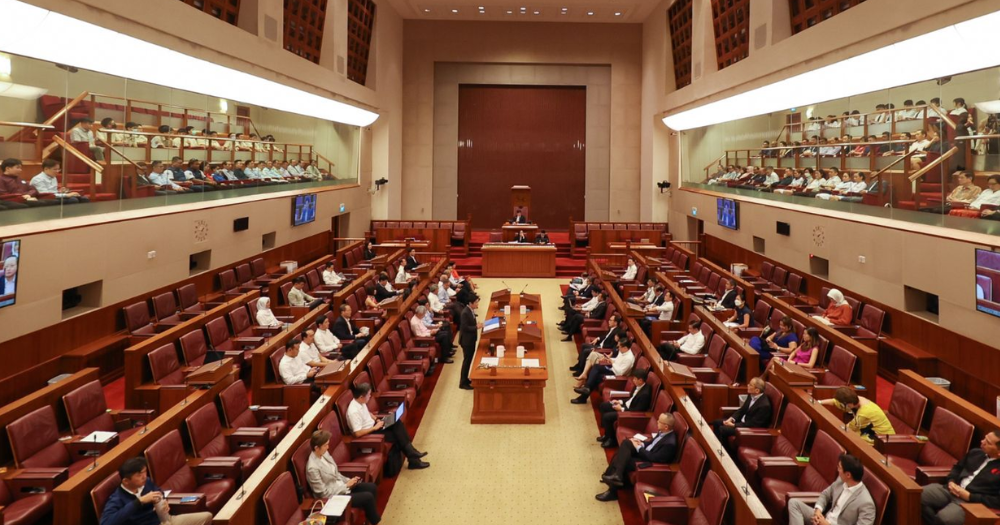
Governance & Democracy
Beyond bread-and-butter issues, the parties also differ on how Singapore should be governed. Here are their proposals for political and electoral reform:
PAP
The PAP manifesto talks about "A More United Team – A Stronger Singapore" but doesn't propose structural changes to the current system. They emphasize team renewal and maintaining current governance frameworks.
Workers' Party
WP proposes lowering the voting age to 18, abolishing GRCs in favour of SMCs, abolishing the NCMP and NMP schemes, establishing an Ombudsman with corrective action powers, and enacting a Freedom of Information Act. They also want to set up Parliamentary Select Committees for ministries and a non-partisan Parliamentary Budget Office.
Progress Singapore Party
PSP wants to reform ministerial salaries by benchmarking them to median citizen income instead of the top earners. They call for public asset declarations by all MPs, more accountability from Temasek and GIC (with salary disclosures), enacting a Freedom of Information Act, and reforming POFMA to give judiciary power over "fake news" determinations.
Singapore Democratic Party
SDP calls for establishing a Freedom of Information Act and removing race identification from NRICs. They believe current laws like POFMA and POHA have been "used to stifle dissent and silence independent voices" and argue Singapore "cannot thrive as a knowledge-based economy if it restricts critical thinking."
Red Dot United
RDU also supports passing a Freedom of Information Act to empower citizens with access to information. Their manifesto argues the current system places an "undue burden on consumers" and calls for more accountability and transparency.
Singapore People's Party
SPP calls for amending the Constitution to allow proportional representation for smaller parties in Parliament. They want a Freedom of Information law, easing of defamation laws to encourage open discussion, fixed election dates, and an independent elections commission separate from the Prime Minister's office.
National Solidarity Party
NSP advocates for establishing a Freedom of Information Act and a standard elections system with fixed dates. They aim to introduce mandatory youth representation in national advisory councils and establish a system to monitor and protect urban nature areas
| Party | Electoral System | Transparency | Special Focus |
|---|---|---|---|
| PAP | Current system | Current framework | Team renewal |
| WP | All SMCs, lower voting age to 18 | Freedom of Information Act, Ombudsman | Parliamentary Select Committees |
| PSP | Reform EBRC, abolish GRCs | Freedom of Information Act, MP asset declaration | Reform ministerial pay, GIC/Temasek accountability |
| SDP | Not specifically detailed | Freedom of Information Act | POFMA/POHA reform, remove NRIC race ID |
| RDU | Not specifically detailed | Freedom of Information Act | Not specifically highlighted |
| SPP | Proportional representation, fixed elections | Freedom of Information law | Independent elections commission |
| NSP | Fixed election dates | Freedom of Information Act | Youth representation in advisory councils |
The Coconut Take:
There's remarkable consistency among the opposition parties on governance reforms – all support some version of a Freedom of Information Act, most want electoral reforms, and many want to reform POFMA. These issues typically animate a segment of voters concerned with democratic freedoms, though they often take a backseat to bread-and-butter concerns. The PAP's position is essentially that the current system works well and doesn't need major structural reforms. Your view likely depends on whether you think Singapore needs more political contestation or whether you prioritize stability and continuity over democratic reform.
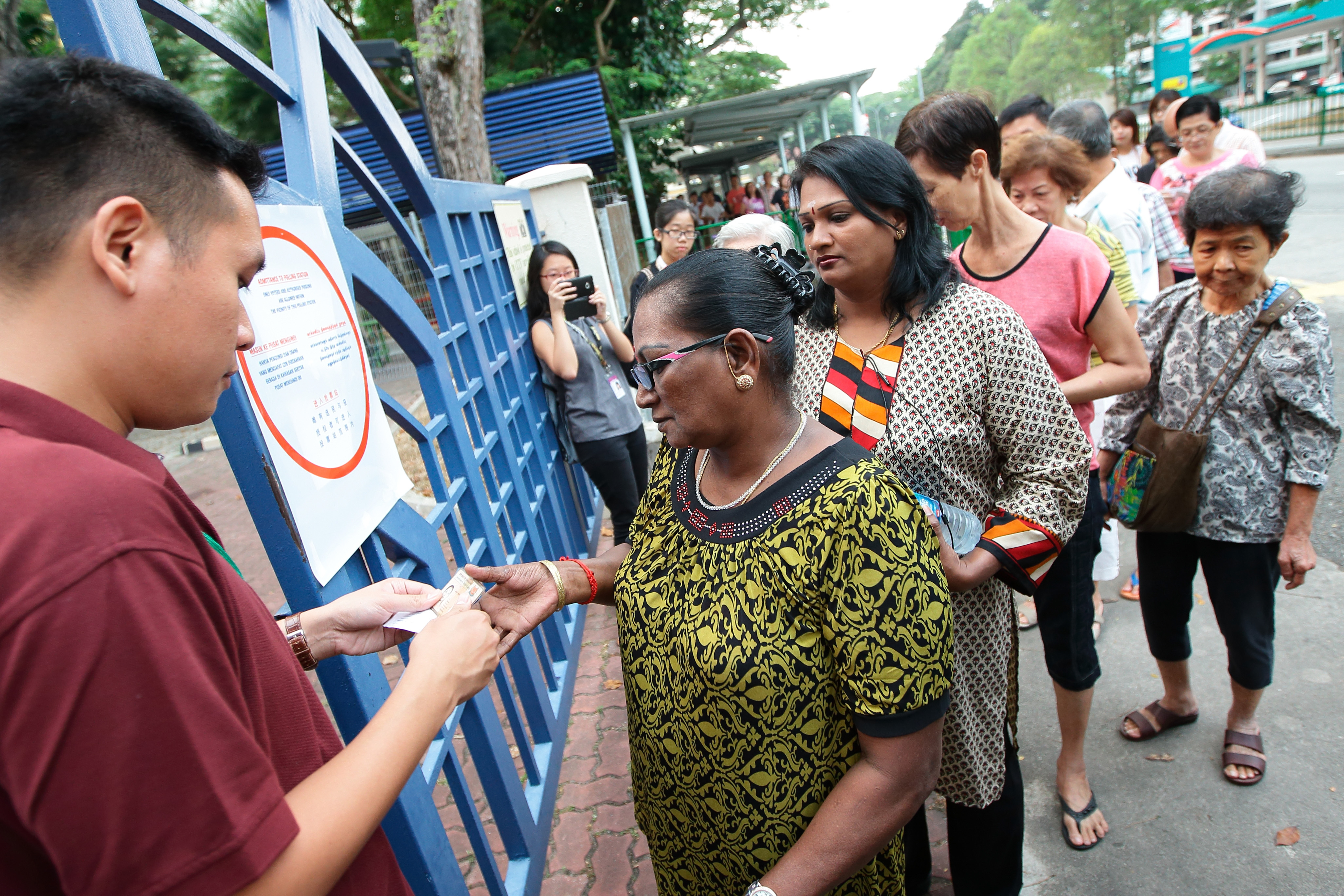
What Does This All Mean For You?
After reviewing all these manifestos, here's what becomes clear:
- PAP: Stability, incremental change, maintaining key systems
- WP: Detailed alternative policies, balance between welfare and fiscal prudence
- PSP: Focus on affordability, stronger controls on foreign labor, removing land costs from housing
- SDP: Most radical reforms, especially in healthcare and education, elimination of GST on essentials
- RDU: Citizens Dividend concept, comprehensive housing reset, support for SMEs
- SPP: Balanced budget with vouchers, SERS expansion, electoral reform
- NSP: $10 GP cap, affordable housing model, NS for new citizens
And here's what stands out:
Cost of Living Policies:
- Most Aggressive GST Reform: SDP (elimination on essentials), followed by PSP (reduction to 7%)
- Most Immediate Relief: SPP (distributing budget surpluses as vouchers)
- Most Structural Change: WP (alternative revenue sources and comprehensive utility pricing reform)
Housing Policies:
- Most Affordable New Flats: SDP (prices from $90k-$270k)
- Most Innovative Ownership Model: PSP (Affordable Homes Scheme without land cost)
- Best for Aging Flats: SPP and RDU (expanded SERS for all estates)
- Best for Singles: PSP (lower BTO eligibility to age 28)
Healthcare Policies:
- Most Affordable Day-to-Day Care: NSP ($10 cap on GP visits)
- Most Comprehensive Insurance Reform: SDP (single system replacing the 3M framework)
- Best for Chronic Conditions: WP (removing MediSave limits for over-60s)
- Most Financially Significant: PSP (government paying all MediShield/CareShield premiums)
As you decide who gets your vote on May 3, consider:
- Which issues matter most to you and your family?
- How realistic are the proposals given Singapore's constraints?
- Which party's vision for Singapore best aligns with your values?
- Do you prefer stability and incremental change, or are you looking for more significant reforms?
Remember:
No manifesto is perfect, and all contain trade-offs. The party with the most appealing housing policy might not have the best approach to healthcare or education. You'll need to decide which issues matter most to you.
Whatever your choice, make it an informed one. And no matter which party wins your vote, holding them accountable after the election is just as important as the vote itself. That's how we build a better Singapore together.
One Final Thought:
In many cases, these manifestos read more like wish lists than detailed implementation plans. It's easy to promise cheaper housing, better healthcare, and higher wages – it's much harder to actually deliver them when faced with real-world constraints and trade-offs. As you evaluate these manifestos, consider not just what sounds good, but what's realistically achievable without compromising Singapore's long-term stability and success.
📊 Election Day: May 3, 2025
Don't forget to bring your NRIC and poll card. Polling stations are open from 8am to 8pm.
Find your polling station: Electoral Department Website
Let us know what you think about this topic, and what do you want to hear next.
Read more on these party policies breakdown on:
- Full guide comparison on Party's Manifesto - CPF, Housing, Retirement, Wages, etc
- Party's Manifestos
- Party's CPF Plans for Singapore
- Housing comparison
- Healthcare
- PMETs & Career
- Digital Economy Policies
- Aspirations of Singapore’s Gen-Z, Millennials & Gen-X Workforce
- Balancing Ambition with Financial Realities
- Redefining Family and Social Success in Singapore's GE2025 Manifestos
You can now be our community contributor and make a pitch to have your favourite personality be on our show.
Join our community group and drop us your insights on this topic.

-3.png?width=50&name=Square%20(2)-3.png)




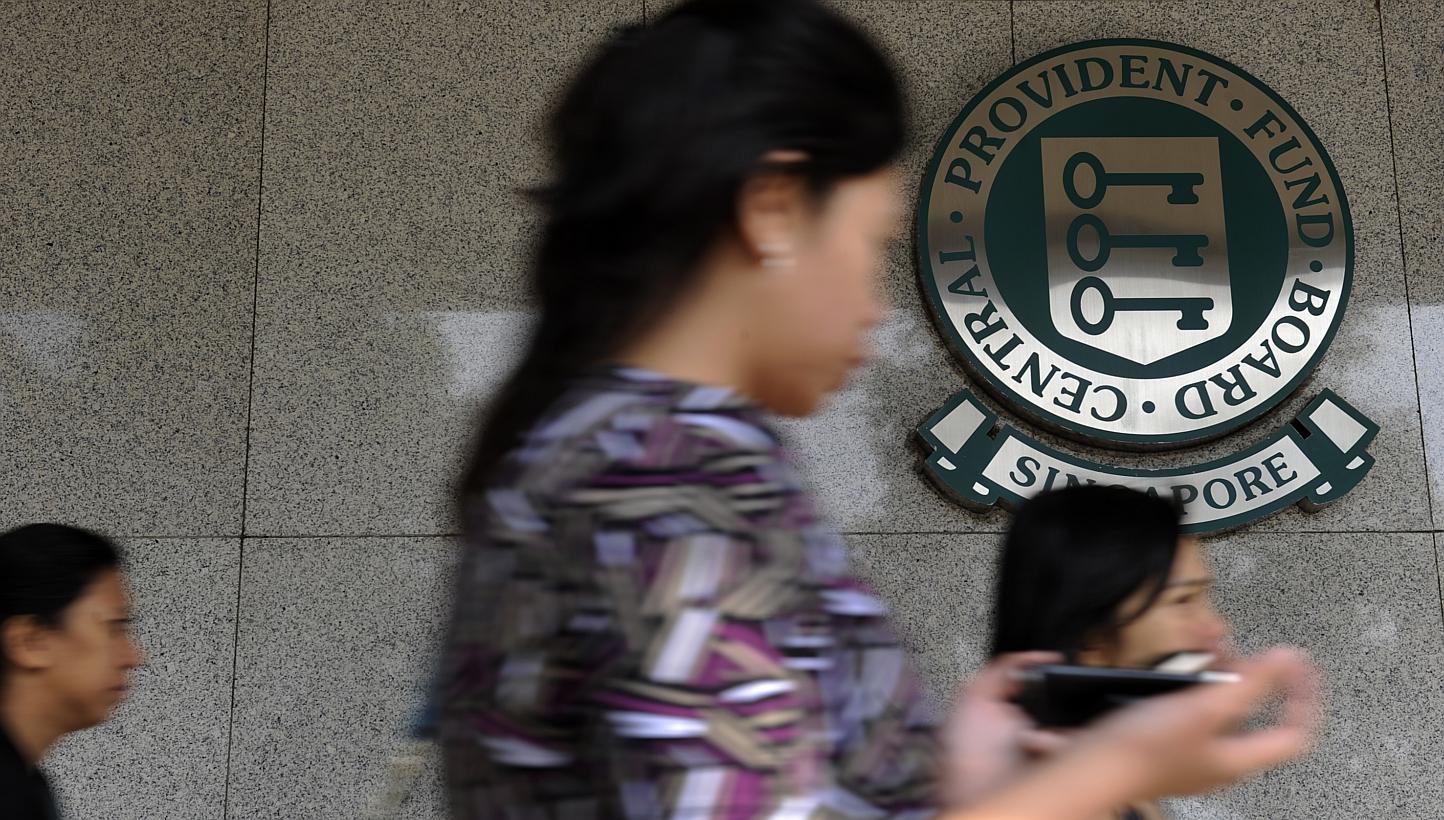


Let us know what you think of this post